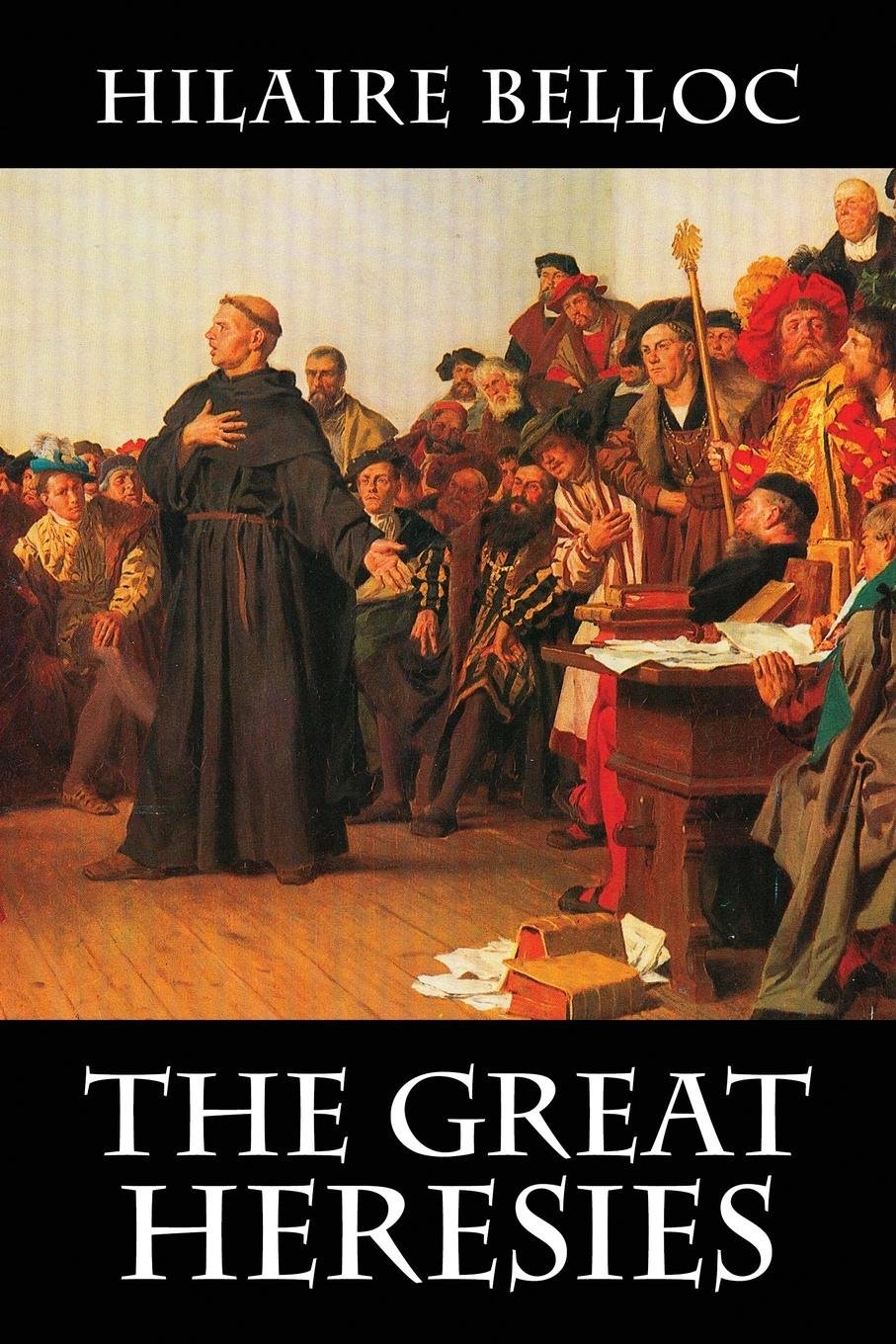
O Hilaire Belloc! How pertinent—yes, how terribly, poignantly pertinent—your great books of the 1920s and 1930s are to the world of today …
And how your foresight then astonishes me. Truly, it takes my breath away.
For Christians today see that Christian civilisation has been lost.
But eighty years ago, this was hardly so apparent as it is now.
Yet, you, Belloc, were awake—whilst others slept.
Yes, long, long before anyone dreamed of the whole world turning brutally capitalist or of legalising abortion or of widespread pornography defended as simply ‘freedom of speech’ or of same sex ‘marriage’—you were alert and you stood your guard.
You were vigilant to what was going to happen, if we let heresy go unchecked.
For this would really seem why you wrote The Great Heresies. For The Great Heresies works on two levels.
At one level, it is a book about historical heresies, including Arianism, Albigensianism, Protestantism – as well as what you call a great modern heresy, yet unnamed …
But at another level, the book is not really about history.
Rather, it is all to do with the menacing power of this great still-unnamed heresy today. For this is certainly why you wrote it …
You make this clear on the very first page:
Heresy is … thought to be of no contemporary interest. Interest in it is dead, because it deals with matter no one now takes seriously. It is understood that a man may interest himself in a heresy from archaeological curiosity, but if he affirm that it has been of great effect on history and still is, today, of living contemporary moment [Italics mine] he will be hardly understood.
Yes, here is the problem. And yet it is still, even today, hardly understood.
And yet how piercingly it cries out to be understood!
Dear Lector, will you listen with me as Belloc unpacks why understanding heresy remains so vital today? And will you bear with me if I not only quote Belloc at length, but even elaborate on this point myself?
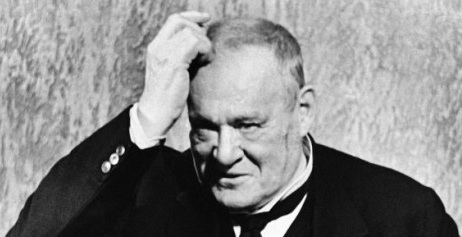
Defining Heresy
In any event, we see, with Belloc, that the first critical task is to understand and define what heresy is. And that is exactly how Belloc opens the book. Here are his first sentences:
What is a heresy, and what is the historical importance of such a thing?
Like most modern words, ‘Heresy’ is used both vaguely and diversely. It is used vaguely because the modern mind is as averse to precision in ideas as it is enamoured of precision in measurement. It is used diversely because, according to the man who uses it, it may represent any one of fifty things.
Today, with most people (of those who use the English language), the word “Heresy” connotes bygone and forgotten quarrels, an old prejudice against rational examination …
Yet the subject of heresy in general is of the highest importance to the individual and to society, and heresy in its particular meaning (which is that of heresy in Christian doctrine) is of special interest for anyone who would understand Europe: the character of Europe and the story of Europe.
For the whole of that story, since the appearance of the Christian religion, has been the story of struggle and change, mainly preceded by, often, if not always, caused by … diversities of religious doctrine.
In other words, ‘the Christian heresy’ is a special subject of the very first importance to the comprehension of European history, because, in company with Christian orthodoxy, it is the constant accompaniment and agent of European life.
We must begin by a definition, although definition involves a mental effort and therefore repels.
Heresy is the dislocation of some complete and self-supporting scheme by the introduction of a novel denial of some essential part therein [Italics mine].
… Heresy means, then, the warping of a system by ‘Exception’: by ‘picking out’ one part of the structure and implies that the scheme is marred by taking away one part of it, denying one part of it, and either leaving the void unfilled or filling it with some new affirmation.
… The denial of a scheme wholesale is not heresy, and has not the creative power of a heresy. It is of the essence of heresy that it leaves standing a great part of the structure it attacks.
On this account it can appeal to believers and continues to affect their lives through deflecting them from their original characters. Wherefore, it is said of heresies that ‘they survive by the truths they retain.’
[Heresy] is the marring by exception of that complete scheme, the Christian religion.
For instance, that religion has for one essential part (though it is only a part) the statement that the individual soul is immortal – that personal conscience survives physical death.
Now if people believe that, they look at the world and themselves in a certain way and go on in a certain way and are people of a certain sort.
If they except, that is cut out, this one doctrine, they may continue to hold all the others, but the scheme is changed, the type of life and character and the rest become quite other [Italics mine].
The man who is certain that he is going to die for good and for all may believe that Jesus of Nazareth was Very God of Very God, that God is Triune, that the Incarnation was accompanied by a Virgin Birth, that bread and wine are transformed by a particular formula; he may recite a great number of Christian prayers and admire and copy chosen Christian exemplars, but he will be quite a different man from the man who takes immortality for granted [Italics mine]

Why Heresy Matters: The Effect on Society
Here is what Belloc’s point: What we believe (or disbelieve) shapes us in a very deep-seated manner. And if belief shapes the individual – what are we to conclude if we recognise not simply the individual, but the great mass of individuals who make up a society?
Belloc’s answer to this is lucid:
Heresy originates a new life of its own and vitally affects the society it attacks.
The reason that men combat heresy is not only, or principally, conservatism – a devotion to routine, a dislike of disturbance in their habits of thought – it is much more a perception that the heresy, in so far as it gains ground, will produce a way of living and a social character at issue with, irritating, and perhaps mortal to, the way of living and the social character produced by the old orthodox scheme.
Because heresy, in this particular sense (the denial of an accepted Christian doctrine) thus affects the individual, it affects all society, and when you are examining a society formed by a particular religion you necessarily concern yourself to the utmost with the warping or diminishing of that religion.
That is the historical interest of heresy. That is why anyone who wants to understand how Europe came to be, and how its changes have been caused, cannot afford to treat heresy as unimportant.
The ecclesiastics who fought so furiously over the details of definition in the Eastern councils had far more historical sense and were far more in touch with reality than the French sceptics, familiar to English readers through their disciple Gibbon.
A man who thinks, for instance, that Arianism is a mere discussion of words, does not see that an Arian world would have been much more like a Mohammedan world than what the European world actually became.
Let us be clear. Here is the entire point of Belloc’s work – to understand that heresy matters precisely because it is not abstract.

And so Belloc stresses how St. Athanasius, who defeated the Arian heresy, was awake to that very fact …
when he affirmed the point of doctrine to be all important.
That local council in Paris, which tipped the scale in favour of the Trinitarian tradition, was of as much effect as a decisive battle …
The point is that the doctrine (and its denial) were formative of the nature of men, and the nature so formed determined the future of the society made up of those men.
. . . Heresy, then is not a fossil subject. It is a subject of permanent and vital interest to mankind because it is bound up with the subject of religion, without some form of which no human society ever has endured, or ever can endure.
… a state, a human policy, or a general culture, must be inspired by some body of morals, and that there can be no body of morals without doctrine, and if we agree to call any consistent body of morals and doctrine a religion, then the importance of heresy as a subject will become clear, because heresy means nothing else than ‘the proposal of novelties in religion by picking out from what has been the accepted religion some point or other, denying the same or replacing it by another doctrine hitherto unfamiliar.’
The study of successive Christian heresies, their characters and fates, has a special interest for all of us who belong to the European or Christian culture, and that is a reason that ought to be self-evident – our culture was made by a religion. Changes in, or deflections from, that religion necessarily affect our civilization as a whole.
The whole story of Europe, her various realms and states and general bodies during the last sixteen centuries has mainly turned upon the successive heresies arising in the Christian world.
We are what we are today mainly because no one of those heresies finally overset our ancestral religion, but we are also what we are because each of them profoundly affected our fathers for generations, each heresy left behind its traces …
Yes, we Catholics – particularly those of us still living in Catholic cultures which never turned to Protestantism – are indebted, far more than we normally recognise, to Catholicism’s continued victory in refusing heresies. These may be modern heresies such as Protestantism or very old heresies such as Arianism and Manichaeism (which expressed itself in Catharism or Albigensianism).
And much of Belloc’s book is devoted to just this: a rich, historical survey of heresies and how, once again they were hardly abstract things – but of far-reaching effect on civilisation.

Islam and the Cathars
Now, Belloc controversially argues that Islam is a heresy, according to the given definition of heresy – something that is not a wholesale denial of Christian truth, but rather a selective partaking of it.
Thus he relates how Islam appropriated many core elements of Christianity – including even veneration of the Virgin Mary! – but discarded the Incarnation and the Trinity.
As such, Belloc argues that Islam is not really so different from Arianism which did the same.
Personally, I am not convinced by Belloc’s argument regarding Islam. Still it hardly matters – I enjoy Belloc’s rich retelling of the rise of Islam and the fascinating insights he conjures up, even where I disagree with him.
Likewise, I am not without concerns regarding Belloc’s treatment of the Cathars, to whom the Church did a terrible violence in Thirteenth Century France.
That said, Belloc clearly acknowledges the atrocities of the Catholics – and highlights a crucial element much ignored these days. The Albigensian conflict in France was not simply a religious matter; it was political. It involved something like a civil war in France between the Catholic north and the increasingly Cathar south.
Considered in this light, it is easy to think of the American Civil War. Abraham Lincoln unleashed terrible forces which wreaked horrific destruction on the American South – yet no-one looks at Lincoln as monstrous today.
None of this is to justify, of course, the tragedy of the war waged Catharism and its terrible atrocities. And whilst I found Belloc’s elaboration of the ‘French civil war’ helpful, I remain less than comfortable with his treatment of that tragedy, in certain aspects at least.
Protestantism and Capitalism …
Yet Belloc’s book, whatever its faults, remains laden with treasure.
For the Catholic reader who simply wants history told in a rich, engaging way can learn much from it, not only about the great heresies – but also about his own faith.
Because each time Belloc considers a particular heresy – and its particular effects on culture – he simultaneously illumines just what the Catholic faith is.
Foreword for Monarchy by Roger Buck
This comes out distinctly as Belloc turns to the Reformation. Here he reflects profoundly on what Protestantism gave us – as well as what we lost. Here is but one example:
The Protestant culture … had more vitality. It had begun in a religious revolution; the eagerness of that revolution carried on and inspired it.
It had broken up old traditions and bonds which had formed the framework of Catholic society for hundreds of years.
The social stuff of Europe was dissolved in the Protestant culture more thoroughly than in the Catholic, and its dissolution released energies which Catholicism had restrained, especially the energy of competition [Italics mine].
All forms of innovation were naturally more favoured in the Protestant culture than in the Catholic; both cultures advanced rapidly in the physical sciences, in the colonisation of distant lands, in the expansion of Europe throughout the world; but the Protestants were more vigorous in all these than were the Catholics.
Yet whilst acknowledging this, Belloc turns to a theme well-familiar to his readers: how Protestant culture alienated humanity from the land
In the Protestant culture (save where it was remote and simple) the free peasant, protected by ancient customs, declined. He died out because the old customs which supported him against the rich were broken up [Italics mine].
Rich men acquired the land; great masses of men formerly owning farms became destitute.
The modern proletariat began and the seeds of what we today call Capitalism were sown.
We can see now what an evil that was, but at the time it meant that the land was better cultivated. New and more scientific methods were more easily applied by the rich landowners of the new Protestant culture than by the Catholic traditional peasantry; and, competition being unchecked, the former triumphed.
Again, inquiry tended to be more free in the Protestant culture than in the Catholic, because there was no one united authority of doctrine; and though in the long run this was bound to lead to the break-up of philosophy and of all sound thinking, the first effects were stimulating and vitalizing.
But the great, the chief, example of what was happening through the break-up of the old Catholic European unity, was the rise of banking.
Usury was practised everywhere, but in the Catholic culture it was restricted by law and practised with difficulty. In the Protestant culture it became a matter of course.
The Protestant merchants of Holland led the way in the beginnings of modern banking; England followed suit; and that is why the still comparatively small Protestant nations began to acquire formidable economic strength. Their mobile capital and credit kept on increasing compared with their total wealth.
The mercantile spirit flourished vigorously among the Dutch and English, and the universal admission of competition continued to favour the growth of the Protestant side of Europe.
Whilst Belloc acknowledges Protestant innovation and a certain freedom of enquiry (limited, it must be said, given the persecution of Catholicism in places like Ireland and England), he clearly regards the end results as tragic. He describes them thus:
The spiritual basis of Protestantism went to pieces through the breakdown of the Bible as a supreme authority. This breakdown was the result of that very spirit of sceptical inquiry upon which Protestantism had always been based.
It had begun by saying, ‘I deny the authority of the Church: every man must examine the credibility of every doctrine for himself.’ But it had taken as a prop (illogically enough) the Catholic doctrine of Scriptural inspiration.
That great mass of Jewish folklore, poetry and traditional popular history and proverbial wisdom which we call the Old Testament, that body of records of the Early Church which we call the New Testament, the Catholic Church had declared to be Divinely inspired.
Protestantism (as we all know) turned this very doctrine of the Church against the Church herself, and appealed to the Bible against Catholic authority.
Hence the Bible – Old and New Testaments combined – became an object of worship in itself throughout the Protestant culture. There was a great deal of doubt and even paganism floating about before the end of the nineteenth century in the nations of Protestant culture; but the mass of their populations, in Germany as in England and Scandinavia, certainly in the United States, anchored themselves to the literal interpretation of the Bible [Italics mine].
Now historical research, research in physical science and research in textual criticism, shook this attitude. The Protestant culture began to go to the other extreme; from having worshipped the very text of the Bible as something immutable and the clear voice of God, it fell to doubting almost everything that the Bible contained.
… There was also another example of the spirit of Protestantism destroying its own foundations, but in a different field that of social economics.
Protestantism had produced free competition permitting usury and destroying the old safeguards of the small man’s property – the guild and the village association.
In most places where it was powerful (and especially in England) Protestantism had destroyed the peasantry altogether. It had produced modern industrialism in its capitalistic form; it had produced modern banking, which at last became the master of the community; but not much more than a lifetime’s experience of industrial capitalism and of the banker’s usurious power was enough to show that neither the one nor the other could continue.
They had bred vast social evils which went from bad to worse, until men, without consciously appreciating the ultimate cause of those evils (which cause is, of course, spiritual and religious) at any rate found the evils unendurable.
Clearly, Belloc pulls no punches! The passage above is but one of many where Belloc argues that the Reformation was catastrophic, fostering the spirit of nationalism and the breakup of Christendom, culminating in World War I as well as:
The institutions of the Protestant hegemony – control by the banks, the levying of general usury through international loans, the wholly competitive industrial system, the unchecked exploitation of a vast proletariat by a small capitalist class …
Why Was Belloc So Militant?
All this will ‘turn off’ many modern folk today, especially those enamoured of so-called ‘political correctness’.
For them, Belloc will be seen as ‘demonising’ – needlessly polarising people into enemy camps.
I understand the feeling. When I was a New Ager – without the slightest notion as to what Catholicism was, nor much of history either – I would have found Belloc disagreeable indeed, perhaps even dangerous.
Today, for me, the boot is on the other leg – I find the cult of ‘political correctness’ dangerous.
For I fear the cultural ignorance and utter complacency it breeds (particularly when, paradoxically, it is not complacent, but actively persecutes all those who do not share its dogma of ‘tolerance’!)
Now, this foreboding sense of danger – grave, acute, and highly erudite – is key to understanding Hilaire Belloc.
For unlike most of us, Belloc possessed not only a profound understanding of historical currents, but also of the Church – the Church as a living organism (rather than a belief-system or a human-made ‘denomination’).
He saw, moreover, that Christian Revelation existed … and that it was hardly unimportant. Rather, it was critical for our civilisation!
That Revelation included matters as vital as the Incarnation (denied by Arianism) or Transubstantiation (denied by Protestantism). And it is precisely because those things are not trifles, but of consequence unfathomable, their denial is, likewise, of unfathomable consequence.
Belloc’s favourite saint was St. Dominic – he who had tried so hard to overcome Catharism in France. Belloc obviously also highly esteemed St. Ignatius who strived to overcome Protestantism.
Now, Hilaire Belloc was not a saint (although I wonder, sometimes, if he was closer to that than many suppose.) Still, like the vast majority of us, he lacked the holiness of the saints and his writing is obviously not without all-too-human limitation and imperfection.
But if Belloc was not a saint like Ignatius or Dominic, still he cared very much about the course of humanity was taking – a course increasingly deprived of Christian Revelation.
And his heart was pierced by that course. And so, like St. Dominic and St Ignatius, he launched a crusade of sorts, with his books …
They are not books which will please the ‘politically correct’ or New Agers like I myself once was.
But I think, whatever their human faults, they would have pleased many, many of the Saints.

Communism and Secularism
Having now considered Belloc’s approach to historical heresies, we come to the book’s final section, which addresses the heresy of our modern age.
It should not be surprising that he regards Communism as a heresy, given that heresy is simply a selective emphasis on one aspect of the Christian religion to the exclusion of the whole. And so we find Belloc writing:
There is abroad today a denial of what theologians call “dominion” – that is the right to own property. It is widely affirmed that laws permitting the private ownership of land and capital are immoral; that the soil of all goods which are productive should be communal and that any system leaving their control to individuals or families is wrong and therefore to be attacked and destroyed.
That doctrine, already very strong among us and increasing in strength and the number of its adherents, we do not call a heresy. We think of it only as a political or economic system, and when we speak of Communism our vocabulary does not suggest anything theological.
But this is only because we have forgotten what the word theological means.
Communism is as much a heresy as Manichaeism. It is the taking away from the moral scheme by which we have lived of a particular part, the denial of that part and the attempt to replace it by an innovation.
The Communist retains much of the Christian scheme – human equality, the right to live, and so forth – he denies a part of it only.
‘We are Living Today Under a Regime of Heresy’
Whilst Belloc writes more on Communism – perceptively and engagingly – his main concern with our modern age is neither Communism per se, nor Capitalism – but something else much harder to define.
When Benedict XVI spoke about the ‘dictatorship of relativism’, it would seem he saw much the same thing as Belloc did nearly eighty years ago:
We are living today under a regime of heresy with only this to distinguish it from the older periods of heresy, that the heretical spirit has become generalised and appears in various forms.
It will be seen that I have, in the following pages, talked of ‘the modern attack’ because some name must be given to a thing before one can discuss it at all, but the tide which threatens to overwhelm us is so diffuse that each must give it his own name; it has no common name as yet [Italics mine].
Perhaps that will come, but not until the conflict between that modern anti-Christian spirit and the permanent tradition of the Faith becomes acute through persecution and the triumph or defeat thereof. It will then perhaps be called anti-Christ.
Obviously, Hilaire Belloc was not one to mince words …
However, I say, that, long ago, Belloc’s heart was awake to the unfolding tragedy he witnessed in the West.
And the decades that have since elapsed have only proved his essential concerns were far – very far! – from being unjustified.
And yet still, I suppose there will be those who decry Belloc as being unduly ‘alarmist’ or ‘sensationalist’ in his prophetic writings.
And so I will I say it again: Belloc, you were awake, whilst others slept.
You stood guard at your post, whilst others mocked you.
You were a prophet whose heart was ripped open and you spoke your heart:
The Faith is now in the presence not of a particular heresy as in the past—the Arian, the Manichean, the Albigensian, the Mohammedan—nor is it in the presence of a sort of generalised heresy as it was when it had to meet the Protestant revolution from three to four hundred years ago.
The enemy which the Faith now has to meet, and which may be called ‘The Modern Attack’ is a wholesale assault upon the fundamentals of the Faith – upon the very existence of the Faith.
And the enemy now advancing against us is increasingly conscious of the fact that there can be no question of neutrality.
The forces now opposed to the Faith design to destroy.
The battle is henceforward engaged upon a definite line of cleavage, involving the survival or destruction of the Catholic Church. And all—not a portion—of its philosophy.
We know, of course, that the Catholic Church cannot be destroyed. But what we do not know is the extent of the area over which it will survive; its power of revival or the power of the enemy to push it further and further back on to its last defenses until it may seem as though anti-Christ had come and the final issue was about to be decided. Of such moment is the struggle immediately before the world.
… No; the quarrel is between the Church and the anti-Church—the Church of God and anti-God- the Church of Christ and anti-Christ.
The truth is becoming every day so much more obvious that within a few years it will be universally admitted. I do not entitle the modern attack ‘anti-Christ’- though in my heart I believe that to be the true term for it: No, I do not give it that name because it would seem for the moment exaggerated.
But the name doesn’t matter. Whether we call it “The Modern Attack” or ‘anti-Christ’ it is all one; there is a clear issue now joined between the retention of Catholic morals, tradition, and authority on the one side, and the active effort to destroy them on the other.
The Modern Attack will not tolerate us. It will attempt to destroy us. Nor can we tolerate it. We must attempt to destroy it as being the fully equipped and ardent enemy of the Truth by which men live. The duel is to the death.
Either the Catholic Church (now rapidly becoming the only place wherein the traditions of civilisation are understood and defended) will be reduced by her modern enemies to political impotence, to numerical insignificance, and, so far as public appreciation goes, to silence; or the Catholic Church will, in this case as throughout the past … recover and extend her authority, and will rise once more to the leadership of civilization which she made …

Belloc in a Time Machine
Your language is indeed strong, Hilaire Belloc. But what would happen if someone had a time machine and travelled back to your era?
Would he not find a world wherein ‘the traditions of civilisation’ were so much better ‘understood and defended’ than today?
And what if our hypothetical time-traveller were to snatch you, Hilaire Belloc, from the streets of England circa 1930 – and transport you back to England in the year 2014 …?
You would walk these English roads today, Hilaire Belloc, and what would you see?
Hideous, monotonously soulless architecture – the likes of which perhaps even you could not have foreseen?
Yes, indeed …
Capitalism more exploitative and manipulative than even you could have thought possible?
I should think so.
Materialism, agnosticism and atheism at unprecedented levels in the West? And our children ever more educated in the same?
And what would appear to you as pornography would now be utterly commonplace – if not ubiquitous.
By this, I do not mean magazines like Playboy, Penthouse and all the rest. I mean things we now take as ordinary and everyday – advertising, for example, clearly designed to stimulate male erotic desire in ways unimaginable in 1930.
Belloc, you were a man profoundly chaste and devoted to your wife. You would be appalled to see all this—and rightly so …
All this, of course, is to say nothing of abortion and same-sex ‘marriage’ and soon, perhaps, polygamy and even ‘consensual incest’ decriminalised …
Belloc, how you were decried for your strong language.
Is the problem, then, that you were too aggressive? Perhaps – because, with your heart in pain, you certainly could be aggressive.
And your combative French temperament was certainly less polite than the English one (and probably more honest).
Or is the problem, rather, that most of us are too lazy and complacent and do not like being reminded of uncomfortable things?
And that we would rather dismiss you as simply ‘polemical and polarising’ – rather than face the truth of the modern world?
Foreword for Monarchy by Roger Buck
The (Near) Extinction of Catholicism?
In any event, Belloc, beloved deceased friend, you spoke clearly about two alternate futures which lie before us:
The modern attack on the Faith … has advanced so far that we can already affirm one all-important point quite clearly: one of two things one must happen, one of two results must become definite throughout the modern world.
In a word, either we of the Faith shall become a small persecuted neglected island amid mankind, or we shall be able to lift at the end of the struggle the old battle-cry, “Christus Imperat!”
The normal human conclusion in such conflicts—that one or the other combatant will be overwhelmed and will disappear, cannot be accepted. The Church will not disappear, for the Church is not of mortal stuff; it is the only institution among men not subject to the universal law of mortality. Therefore we say, not that the Church may be wiped out, but that it may be reduced to a small band almost forgotten amid the vast numbers of its opponents and their contempt of the defeated thing.
One of the most intelligent of French Catholics, a converted Jew, has written a work to prove (or suggest) that [this] will be our fate. He envisages the last years of the Church on this earth as lived apart. He sees a Church of the future reduced to very few in numbers and left on one side in the general current of the new Paganism. He sees a Church of the future within which there will be intensity of devotion, indeed, but that devotion practiced by one small body, isolated and forgotten in the midst of its fellowmen.
The late Robert Hugh Benson wrote two books, each remarkable and each envisaging one of the opposite possibilities. In the first The Lord of the World, he presents the picture of the Church reduced to a little wandering band, returning as it were to its origins, the Pope at the head of the Twelve—and a conclusion on the Day of Judgment.
In the second he envisages the full restoration of the Catholic thing—our civilization re-established, reinvigorated, once more seated and clothed in its right mind; because in that new culture, though filled with human imperfection, the Church will have recovered her leadership of men and will inform the spirit of society with proportion and beauty once more.

‘A Pagan Future’ …?
In the final pages of The Great Heresies, Belloc sets the two scenarios out in some detail, so as to compare and contrast between the two. Let us listen to his case for the first scenario – the near extinction of the Faith:
For the first issue (the dwindling of Catholic influence, the restriction of our numbers and political value to the edge of extinction) there is to be noted the increasing ignorance of the world about us, coupled with the loss of those faculties whereby men might appreciate what Catholicism means and take advantage of their salvation.
The level of culture, including a sense of the past, sinks visibly. With each decade the level is lower than the last. In that decline tradition is breaking away and melting like a snow-drift at the end of winter. Great lumps of it fall off at one moment and another, melt, and disappear. …
Old men now living can remember uneasy rebellion against tradition; but young men only perceive for themselves how little there is left against which to rebel, and many fear that before they die the body of tradition will have disappeared. That mood of faith has been largely ruined, ruined certainly for the greater part of men, all will admit.
So true is this that already a majority (I should affirm it to be a very large majority) do not know what the word faith means. For most men who hear it (in connection with religion) it signifies either blind acceptance of irrational statements and of legends which common experience condemns, or a mere inherited habit of mental pictures which have never been tested and which at the first touch of reality dissolve like the dreams they are.
Those nations which are by tradition anti-Catholic, which were once Protestant and have now no fixed traditions, have been so long in the ascendant that they regard their Catholic opponents as finally beaten.
Those nations which had retained the Catholic culture are now in the third generation of anti-Catholic social education. Their institutions may tolerate the Church, but are never in active alliance with it and often in acute hostility.
To clarify this last, Belloc’s last comments refer to countries such as France where a truly brutal process of secularisation had recently taken place at that time – closing Catholic schools en masse, forbidding nuns to teach, even exiling entire religious orders from French soil. Writing these words from Ireland, as I do, I fear that I am starting to see the same hysteria here – but I will not digress further but return to Belloc …
Judged by all the parallels of history and by the general laws which govern the rise and decay of organisms, one might conclude that the active role of Catholicism in the things of the world was over; that in the future, perhaps in the near future, Catholicism would perish.
The Catholic observer would deny the possibility of the Church’s complete extinction. But he must also follow historical parallels; he also must accept the general laws governing the growth and decay of organisms, and he must tend, in view of all the change that has passed in the mind of man, to draw the tragic conclusion that our civilization, which has already largely ceased to be Christian, will lose its general Christian tone altogether.
The future to envisage is a pagan future, and a future pagan with a new and repulsive form of paganism, but none the less powerful and omnipresent for all its repulsiveness.
… Or the Restoration of Christianity?
The traditional Catholic reader of today can only see your prophetic powers all-too-well, dear Belloc. However, lest we despair altogether, let us likewise listen to your case for the alternative scenario:
The fact [is] that all through the centuries the Church has reacted strongly towards her own resurrection in moments of deepest peril.
The Mohammedan struggle was a very close thing; it nearly swamped us; only the armed reaction in Spain, followed by the Crusades, prevented the full triumph of Islam.
The onslaught of the barbarian, of the northern pirates, of the Mongol hordes, brought Christendom to within an ace of destruction. Yet the northern pirates were tamed, defeated and baptised by force. The barbarism of the eastern nomads was eventually defeated; very tardily, but not too late to save what could be saved.
The movement called the Counter-Reformation met the hitherto triumphant advance of the sixteenth-century heretics. Even the Rationalism of the eighteenth century was, in its own place and time, checked and repelled.
It is true that it bred something worse than itself; something from which we now suffer. But there was reaction against it; and that reaction was sufficient to keep the Church alive and even to recover for it elements of power which had been thought lost for ever.
Reaction there will always be; and there is about Catholic reaction a certain vitality, a certain way of appearing with unexpected force through new men and new organizations.
History and the general law of organic rise and decay lead on their largest lines to the first conclusion, the rapid withering of Catholicism in the world; but observation as applied to the particular case of the Catholic Church does not lead to such a conclusion.
The Church seems to have an organic, a native, life quite unusual: a mode of being unique, and powers of recrudescence peculiar to herself.
At this point, dear Lector, I should like to digress for just a moment from this review. For if you are like me, you will be in need of hope. And there is something else at this website that has given me great hope indeed.
What Belloc terms the Church’s peculiar ‘powers of recrudescence’, Valentin Tomberg writes of the repeated regeneration of the Faith across the centuries. And perhaps no piece of writing has sustained me more on this topic than Tomberg’s. You will find it here.
But to return to Belloc:
The future is not decided for men by public vote; it is decided by the growth of ideas. When the few men who can think best and feel most strongly and who have mastery of expression begin to show a novel tendency towards this or that, then this or that bids fair to dominate the future.
It is with this in mind – the power of a few gifted individuals – that Belloc then turns to a phenomenon largely forgotten today, but which was once a notable feature of English culture – before Vatican II.
For after Vatican II, conversions to Catholicism fell – precipitously. But prior to the Second Vatican Council, conversions to Catholicism in England and America were booming, reaching ever higher levels, year upon year.
Here is what Belloc means by a ‘novel tendency’ – for in England, a few public figures led the way, with a ‘mastery of expression’ as Belloc has put it – people like Graham Greene, Evelyn Waugh and of course Belloc’s great friend G.K. Chesterton. And there were many, many other literary and cultural figures who became well-known converts, even if they are less-known today.
Thus Belloc writes:
Of this new tendency to sympathise with Catholicism—and in the case of strong characters to take the risk, to accept the Faith, and proclaim themselves the defenders of it—there can be no doubt.
Even in England, where the traditional feeling against Catholicism is so universal and so strong, and where the whole life of the nation is bound up with hostility to the Faith, the conversions which strike the public eye are continually the conversions of men who lead in thought …
Catholicism and New Age Neo-Paganism
Finally, Belloc draws hope from something that may seem odd indeed. He predicts that the distinction between the Catholic faith and a new Paganism will grow ever clearer.
With my own background as a Catholic convert from the neo-paganism of the New Age movement, what Belloc writes is indeed striking:
Lastly there is this very important and perhaps decisive consideration: though the social strength of Catholicism, in numbers certainly, and in most other factors as well, is declining throughout the world; the issue, as between Catholicism and the completely new pagan thing (the destruction of all tradition, the breaking with our inheritance), is now clearly marked.
There is not, as there was even quite a short time ago, a confused and heterogeneous margin or penumbra which could talk with confidence of itself under the vague title of ‘Christian,’ and speak confidently of some imaginary religion called ‘Christianity.’
No. There are today already almost quite distinct and sharing the field between them, soon to be as markedly exposed as black and white, the Catholic Church on one side, and on the other opponents of what has hitherto been our civilisation.
The ranks have lined up as for a battle; and though such clear division does not mean that the one or the other antagonist will conquer, it does mean that a plain issue is defined at last; and in plain issues a good cause, like a bad one, has a better chance than in confusion.
Even the most misguided or the most ignorant of men, talking vaguely of ‘Churches,’ are now using a language that rings hollow. The last generation could talk, in Protestant countries at least, of ‘the Churches.’ The present generation cannot. There are not many churches; there is one.
American readers may still puzzle over this one. For different Christian denominations are certainly still active in the United States.
How different it looks in England and the rest of Europe! Your reviewer, Dear Reader, recently spent two years living in Britain again. And how very, very dead Protestantism appeared to him …
The mainstream British media even spoke of England as a Catholic country for the first time since the Reformation! And why – given that England is only ten per cent Catholic?!
For this reason: There are more Catholics going to church each Sunday in England than Protestants – even though those who are at least nominally Protestant constitute something like sixty per cent of the country!
Yes, my recent time in England convinced me of this: The future of English Christianity will be ever more Catholic, whilst Protestantism withers away.
But at the same time, the future of Catholicism in England is hardly rosy. For what is far more powerful than either Catholicism or Protestant in England is the neo-paganism of the New Age.
Or in other words, my time in England once again revealed to me the prophetic nature of Belloc’s words above:
The issue, as between Catholicism and the completely new pagan thing (the destruction of all tradition, the breaking with our inheritance), is now clearly marked.
This is why Belloc concludes The Great Heresies with these words.
It is the Catholic Church on the one side and its mortal enemy on the other. The lists are set.
Thus are we now in the presence of the most momentous question that has yet been presented to the mind of man. Thus are we placed at a dividing of the ways, upon which the whole future of our race will turn.
What more can I say?
I write these lengthy reviews of Hilaire Belloc in the hope the man will be read.
And so should you care about the same things I do, Lector, I urge you: read Belloc …
Foreword for Monarchy by Roger Buck
Buying Books at Amazon Through These Links Gives Us a Commission. This Supports Our Apostolate. Thank You if You Can Help Us Like This!





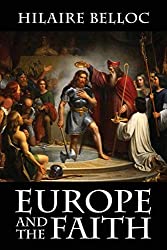
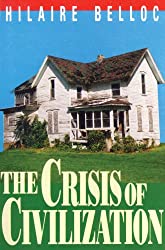
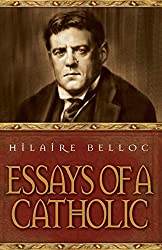
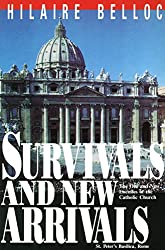
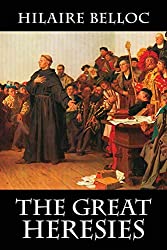
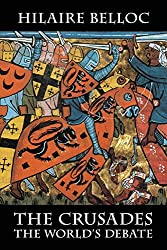
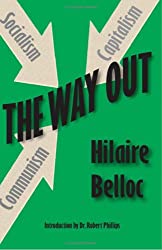
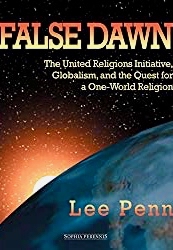
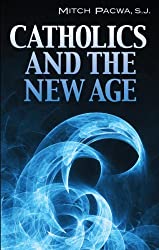
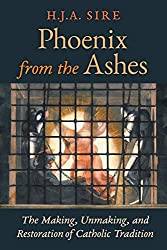
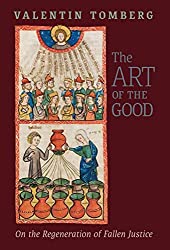

Comments
comments are currently closed
3 responses to “Hilaire Belloc on The Great Heresies (Review)”
Isn’t comparing Simon of Montfort to Lincoln a bit unfair to Simon?
Point taken, Hans-Georg! But for those who know little here, I thought the comparison just might help …
[…] of extract. This is taken from a book review of Hilaire Belloc’s The Great Heresies. That review will be very long when it appears – and will supply much more context than the […]
[…] Above The great man himself, . There are quite a few photographs of Belloc on the internet and he generally looks quite severe. I chose this one because it shows a little more of his humanity. Source Cor Jesu Sacratissimum […]